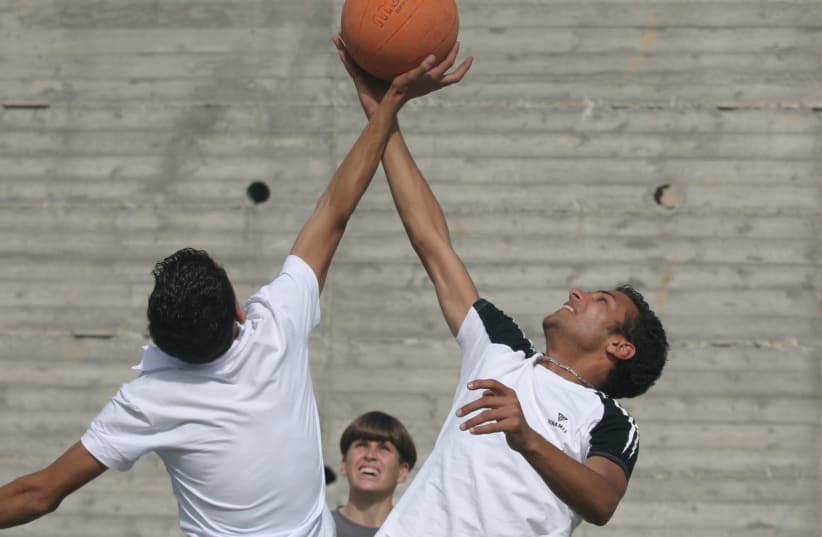Adolescents who participate in or work out with a group are both physically and mentally more resilient than their peers, even when practicing virtually using programs such as Zoom, according to a Tel Aviv University study, providing major positive support for this current period of social distancing and lockdowns amid the coronavirus pandemic.
The study, the only one of its kind in the world to be focused solely on adolescents, was conducted by Dr. Keren Constantini, Irit Marcus, Dr. Naomi Apple, Dr. Ronit Jakobovitch, Dr. Iftach Gafner and Dr. Shahar Lev-Ari. Its results were presented at a joint conference of the Schools of Public Health Organization, the Israel Association of Public Health Physicians and the Sports Physicians Association.
"We conducted the study during the general lockdown," said Lev-Ari, Head of the Department of Health Promotion at Tel Aviv University. "Some organizations and gyms had suspended their sports programs, but others, like the educational sports organization Chamesh Etzbaot (Five Fingers), adopted an online format, mostly through Zoom. We were interested in checking whether online activities helped build adolescents' physical and mental resilience."
In order to come to a better understanding of the idea, Lev-Ari and his team compared the situations of two different groups: adolescents who continued to practice in an online group context and their peers who exercised on their own during the lockdown.
A survey was conducted among 473 participants who had been enrolled in organized sports programs before social distancing and lockdown measures went into effect, in order to study the physical resilience levels, health behaviors and risk perceptions of the different adolescent groups.
In addition, in order to study participants' mental resilience, the researchers provided and compared answers to those of validated questionnaires such as the Connor-Davidson Resilience Scale.
These questionnaires included statements such as "I tend to bounce back easily from illness or difficulty," "I don't despair easily when I fail" and "I see the amusing side of things" – with each respondent ranking how true the statement is for him/her on the given scale.
"THE RESULTS were unequivocal, in all measures," Lev-Ari said, referring to the findings that showed that adolescents who practiced in group formats, even over online platforms, were found to have more mental and physical resilience.
In terms of physical resilience, researchers found that adolescents who continued to participate in sports programs through an online format during the lockdown actually practiced more – and thus exhibited higher levels of resilience, had better self-esteem and higher morale, and expressed fewer concerns about the pandemic.
"We found that adolescents who continued to take part in their sports programs through the Internet practiced more – 242 minutes of practice per week vs. only 191 minutes for adolescents who worked out on their own," Lev-Ari explained.
"But this only accounts for the physical resilience. In addition, there is the aspect of mental resilience: a person's ability to cope with difficulties, burdens and stress," he said. "This has to do with an element of personal endurance that stems from personality, as well as various acquired elements – like the size of the 'battery' I have for withstanding pressure, and how quickly I can recharge it."
Overall, adolescents who continued their sports program exhibited higher spirits, less anxiety about themselves and their families, and lower levels of stress – even though their practice sessions continued through Zoom, according to Lev-Ari.
"Moreover, these adolescents were more aware of the importance of organized sports, especially at this time," he said.
Some 84% of the adolescents who participated in sports said that the continued practice sessions helped them cope with negative feelings and low spirits during the lockdown – and 55% indicated that their contact with the coach served as a meaningful source of support.
"Our study proves the importance of continued activities in organized sports programs in these challenging times of the COVID-19 pandemic, and similar conclusions can certainly be deduced with regard to other social organizations as well, such as youth movements," Lev-Ari concluded.
